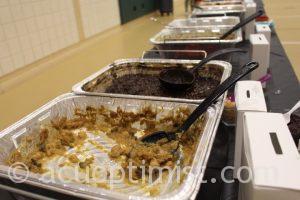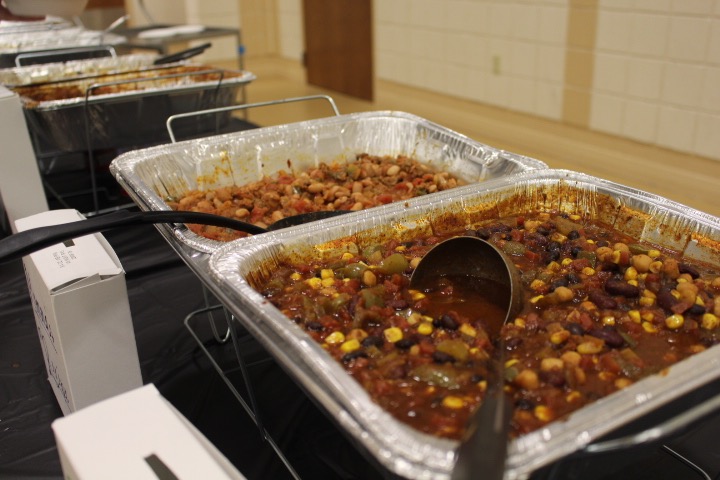Nutrition students hosted a chili cook-off fundraiser Saturday to help send Student Academy of Nutrition and Dietetics students to Haiti this summer to work with LiveBeyond to develop a supplement for malnourished children.
Carolyn Miller, senior nutrition major from Virginia and president of SAND, said the members raised almost $200 and fed around 50 people. The chili was one dollar per bowl, and five dollars per submission.

The quinoa chili was one of the favorites of the night, as was the chocolate chili.
The winning “Cat Chili” belonged to Reagan Mabry, nutrition major from Tolar. “It was probably the easiest meal I’ve ever made,” said Mabry. She said the ingredients were sausage and ground beef (not cat), beans, and a lot of spices.
Mabry said the name of her chili came from her mother’s idea to incorporate “something wildcat” into the title.
There were many different variations of chili to choose from: classic chili, vegetable chili, quinoa chili, spicy vegan chili, “non-greasy vegan chili,” “Momma’s chili,” and even chocolate coconut chipotle chili made by Samm Kolb, a senior community nutrition major from Abilene and vice-president of SAND.
Kolb said, “I did it because it was different and we are all about trying newer, healthier things.” Kolb helped to plan and orchestrate the chili cook-off. Kolb said her goal was to “bring SAND members together and of course, raise money to help the students go to Haiti because that would be awesome.”

SAND students prepare chili fundraiser
Six SAND students and two faculty members aim to go to Haiti this summer to help Dr. David Vanderpool (‘82) and his wife Laurie (‘81) develop a supplement for the malnourished children in Haiti.
In 2013, the Vanderpools founded the organization LiveBeyond which provides medical and humanitarian aid in Haiti.
(See the full article here: http://acuoptimist.com/2016/08/vanderpools-start-mission-haiti/)
Miller said there are many issues with importing supplements to Haiti, so the goal of the team is to use products that are already in Haiti to create an easy-to-make supplement bar that can be made in the Haitian home.
Dr. Sheila Jones, chair of the kinesiology and nutrition department and project leader for the Haiti mission trip, said “Our search to find what grows in Haiti, led us to the moringa tree.”
Even though the roots and bark have many nutrients, Jones said they will be experimenting with the leaves because they are easier to access online in powder form and are the most efficient use of resources. “We don’t want to cut down the whole tree,” Jones said.
The medium for administering these supplements is still up for experimentation but the most favored option is a bar form. Jones said, “We are still developing, it could take several forms.”

